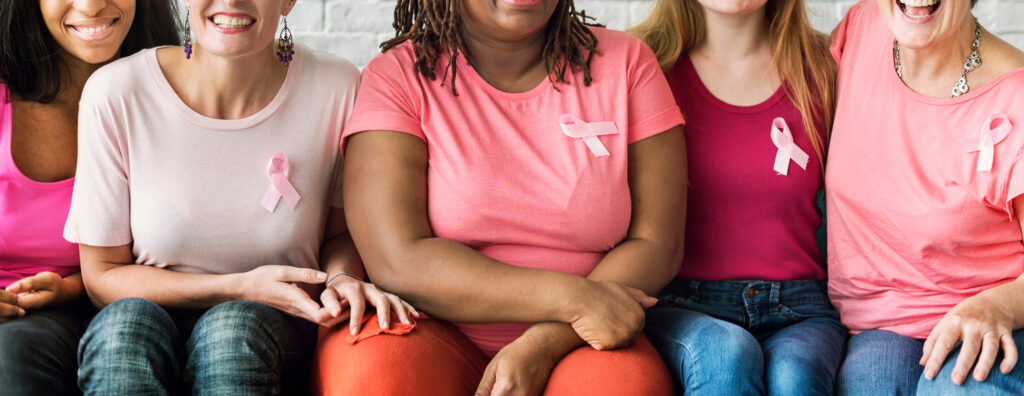October is Breast Cancer Awareness Month, a time to increase awareness about this disease and promote early detection. National Mammography Day is observed annually on the third Friday of every October, during Breast Cancer Awareness Month.
In the fight against breast cancer, knowledge is power. By spreading awareness and encouraging early detection through mammograms and other imaging technologies, we can significantly improve the chances of successful treatment.
Meet the Imaging Technologists
Mammogram technologists play a crucial role in the early detection of breast cancer. By performing the test carefully, they provide patients with a vital tool for maintaining their health and well-being.
Shelby
Erin
Kim
Rose
Q&A with the Techs
Rose & Shelby
How do you normally respond if you come across somebody who seems to be anxious?
… once we get in the room, we explain to them what we are going to do and what we need from them and how we can work together to make it as comfortable as possible. Um, you know, if they have any questions to ask us before we get, but we, we will thoroughly explain to them, show them what we’re going to do and what to expect. … explain the importance of having to compress enough that it might be uncomfortable, but should not be painful.
How long is the actual mammogram? … after check-in and taken back
Five to six minutes for the actual exam time. That varies of course, but it does not take long. And most often we’ll hear that was quick.
Is it your experience is that most people, it’s a better experience than what they thought?
That’s right.
Within your team, because you have this beautiful team of women, what do you do to support each other here?
We just work well together. All of us. I love the team over here. Everyone’s reliable, efficient, well educated in the department. So I mean, we just support each other and help each other wherever we can.
Do you enjoy working in this particular sector of the hospital?
I Love it over here. I love to see the familiar faces. I mean, every day there’s familiar names and I might either just know the name, not the face or I know both. I’m like, oh, so and so’s coming in today. And they love to see familiar faces too. Yeah. Community in a small town is really important. I’ve seen patients year after year and or they’ll ask for who’s working today.
What is the level of discomfort or pain a patient should expect?
…there’s gonna be pressure, but it’s not supposed to hurt. I always say it’s, it’s, um, awkward, maybe uncomfortable. Yeah. But it should not be painful. And if you are experiencing pain, let me know. And of course, everyone’s pain level is different.
Do you have anything that kind of stands out in experience that you had that was really positive in patient care?
We do have patients that like to give us hugs. I have one that I can think of that’s been pretty recent. She, you know, was from this area and she’s come in for years and she needed a biopsy and we did it here. So she came here, had her biopsy, and she loved that. She was around familiar faces and she gave everyone hugs, was very thankful, was very anxious of her results. But the fact that familiar faces versus going somewhere else, because of course you, you can go somewhere else and have your biopsy. And most patients are like, I want to come here. I know you guys. And we, you know, we take good care of ’em.
Is there anything else that you would like to share about your experience either at K V H or in mammography?
Most mammograms are very fast turnaround. So most of them, I would say 90% are read, typically same day. And we tell the patients that your study will probably be read today. If not, it’ll roll over and be read tomorrow. But, um, so it is a quick turnaround. And we do have a radiologist on site.
So if someone comes in for a diagnostic, they’re, they get their results while they are here. And the radiologist, some radiologists will come down with every diagnostic and give them their results personally, or we come back and relay results, Hey, everything looks good. Or, you know, of course if it’s, they’re recommended to have a biopsy, the radiologist will always come and sit down with them and talk to them, answer any questions and explain, you know, what they need to have done.
Tough Enough To Wear Pink
The Foundation at Kittitas Valley Healthcare partners annually with the Ellensburg Rodeo for Tough Enough to Wear Pink to raise funds for breast cancer awareness and prevention services impacting local patients here in Kittitas County.
